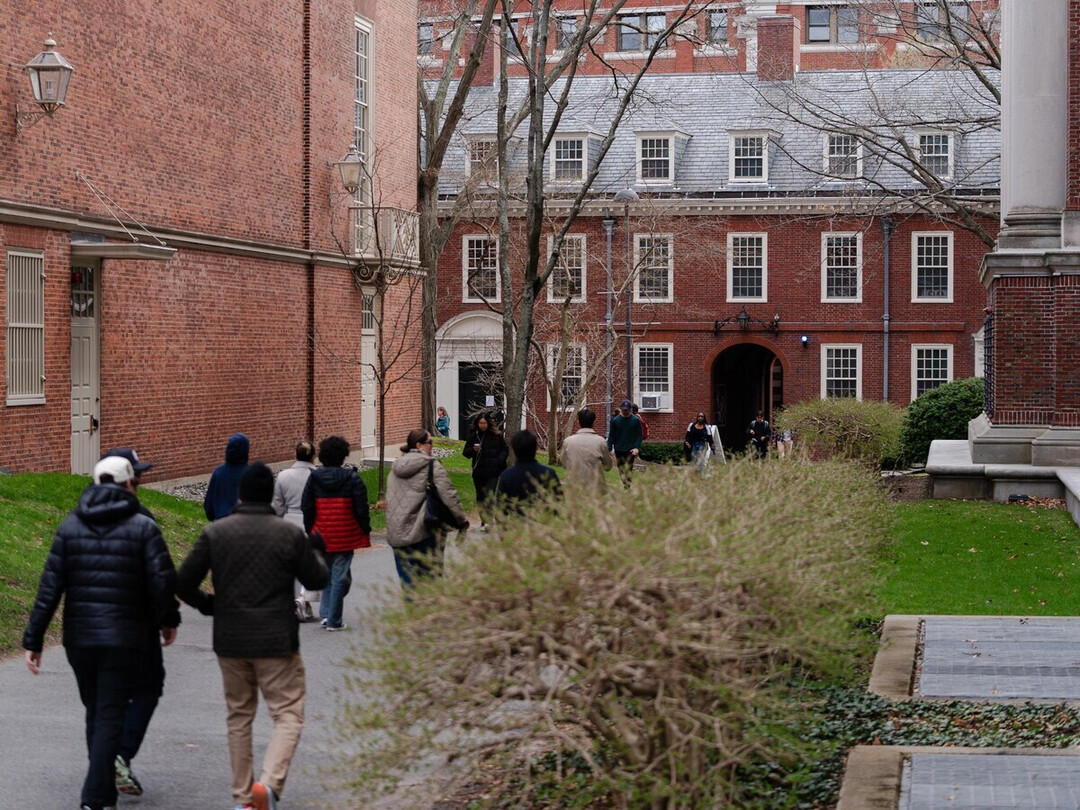
Seoul, Republic of Korea – The abrupt decision by the Donald Trump administration to revoke Harvard University's eligibility to host international students and exchange visitors has sent shockwaves through the global international student community. Singapore's Ministry of Foreign Affairs (MFA) is closely monitoring the potential impact on its citizens' academic prospects and issued an official statement on May 27th, expressing concern over the measure and announcing support initiatives. This action comes amidst ongoing tensions between Harvard University and the Trump administration, leaving approximately 6,800 international students at Harvard facing the prospect of transferring or being deported.
Trump Administration's Stern Action: The Background
The revocation of Harvard's international student eligibility was announced by U.S. Secretary of Homeland Security Kirstjen Nielsen on May 22nd. The reason cited was Harvard's alleged failure to comply with the Trump administration's education policies, particularly demands for the eradication of antisemitism. Secretary Nielsen stated via X (formerly Twitter) that "Harvard has lost its Student and Exchange Visitor Program (SEVP) certification because it failed to comply with the law." She further claimed that Harvard had allowed "anti-American, pro-terrorist agitators to harass Jewish students and disrupt the academic environment," and that many of those inciting this behavior were foreign nationals. Nielsen also pointed out that Harvard had failed to submit relevant data, including the history of violent acts by foreign students, as requested by the Department of Homeland Security.
Previously, the Trump administration had demanded policy changes from Harvard, citing reasons such as the eradication of antisemitism. Harvard, however, refused, asserting that such demands infringed upon "academic freedom." In response, the Trump administration had already escalated pressure by suspending federal funding amounting to approximately 3.6 trillion Korean Won. This latest revocation of international student hosting eligibility is interpreted as a continuation of retaliatory measures against Harvard. In an interview with Fox News, Secretary Nielsen hinted at similar actions being considered for other universities, including Columbia University, emphasizing that this measure should serve as a "warning to rectify behavior" for all universities.
International Students in Turmoil, Including 432 Korean Students
The Student and Exchange Visitor Program (SEVP) certification from U.S. Immigration and Customs Enforcement (ICE) is essential for foreign students to obtain study visas and maintain legal status in the U.S. Without SEVP certification, universities cannot issue Certificates of Eligibility for Nonimmigrant Student Status (Form I-20) to foreign students, which is a key document for F or J visa approval. Harvard University currently hosts approximately 6,793 international students, accounting for 27% of its total student body. These students face the risk of losing their legal residency status and being deported if they do not transfer to another institution. Notably, this includes 432 Korean students (approximately 6.3% of all international students), raising significant concern within Korea.
Harvard's Strong Rebuttal and Court's Temporary Stay
Harvard University immediately protested the Trump administration's action, filing a lawsuit in Boston federal court on May 23rd. Harvard argued that the measure was a "blatant violation" of the U.S. Constitution and other federal laws, condemning it as a threat to democracy. The court accepted Harvard's arguments and issued a temporary stay on the Trump administration's action on May 23rd. While this temporarily maintains the visa and student registration status for foreign students, a fierce legal battle between the federal government and the university is anticipated in the main lawsuit.
Singapore Government's Proactive Support Efforts
The Singapore government has responded swiftly to support its citizens affected by this situation. Singapore's MFA is collaborating with the U.S. Department of State and Department of Homeland Security through the Singapore Embassy in Washington D.C. and has established a support structure for affected students. A group communication channel has been created, hosted by the Consular Department of the MFA and the Singapore Global Network. Affected students can register to join the channel via https://go.gov.sg/singaporeanharvardstudents. Additionally, the Singapore Ambassador will host an online town hall meeting for Singaporean students at Harvard on May 30th at 5 PM (Singapore time May 31st at 5 AM). The MFA has advised students to maintain continuous contact with the Harvard International Office for updates.
The Trump administration's decision to revoke Harvard's international student eligibility has ignited a serious discussion on academic freedom and the importance of international exchange within the United States. The outcome of the upcoming legal battle and the Trump administration's further actions will be closely watched, as deep concerns about the academic pursuits and future of international students worldwide are expected to persist.
[Copyright (c) Global Economic Times. All Rights Reserved.]




























